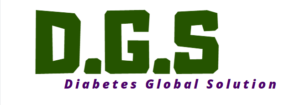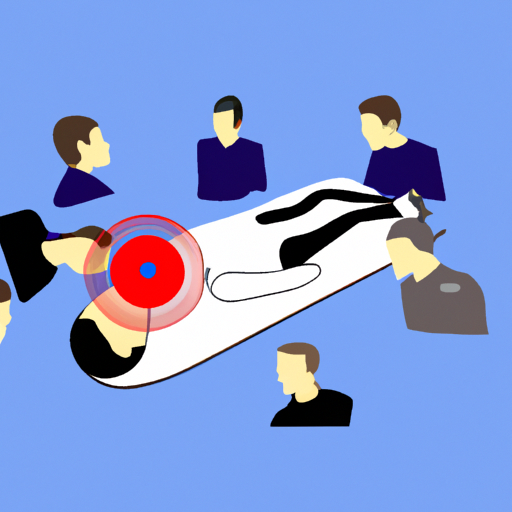Traumatic head injuries can have devastating effects on individuals, often leading to long-term impairments and complications. Understanding the causes, symptoms, and diagnosis of these injuries is crucial in providing timely and effective treatment. In this article, we will delve into the world of traumatic head injuries, exploring the various causes, symptoms, and diagnostic methods. Furthermore, we will delve into the treatment approaches that have proven to be effective in managing these injuries. Finally, we will shed light on the long-term implications and rehabilitation options available for individuals who have experienced traumatic head injuries. By gaining a comprehensive understanding of this topic, we can work towards improving the outcomes and quality of life for those affected by traumatic head injuries.
1. Understanding Traumatic Head Injury: Causes, Symptoms, and Diagnosis
Traumatic head injury, also known as TBI, is a serious condition that occurs when an external force causes damage to the brain. It can result from various incidents, such as falls, car accidents, sports injuries, or violence. Understanding the causes, symptoms, and diagnosing methods of traumatic head injury is crucial for timely and effective treatment.
Causes:
Traumatic head injuries can have different causes, but they all involve a sudden impact or force to the head. Falls are the most common cause, especially among children and older adults. Motor vehicle accidents, assaults, and sports-related injuries, particularly in contact sports like football or boxing, are also common causes. Explosions and blasts, often experienced by military personnel or those involved in industrial accidents, can lead to traumatic head injuries as well.
Symptoms:
The symptoms of traumatic head injury range from mild to severe, depending on the extent of the damage. Mild cases may lead to brief changes in mental state or consciousness, while severe cases can result in long-term disability or even death. Some common symptoms include headaches, dizziness, confusion, memory loss, changes in mood or behavior, difficulty speaking or understanding, seizures, nausea, and difficulty balancing.
Diagnosis:
Diagnosing traumatic head injury requires a comprehensive evaluation by medical professionals. Doctors typically begin by assessing the patient’s medical history and conducting a physical examination. They may also order imaging tests such as CT scans or MRI scans to assess the extent of the brain injury. In some cases, additional tests like EEG (electroencephalogram) or neuropsychological testing may be necessary to evaluate cognitive function and detect any underlying brain damage.
It is worth noting that not all head injuries result in immediate symptoms or visible signs, making timely diagnosis challenging. Therefore, it is essential to
2. Effective Treatment Approaches for Traumatic Head Injury
Traumatic head injury is a serious condition that requires prompt medical attention and appropriate treatment approaches. The treatment options for individuals with traumatic head injury may vary depending on the severity and specific symptoms experienced. In this section, we will discuss some effective treatment approaches for traumatic head injury.
1. Immediate medical intervention: When a traumatic head injury occurs, it is crucial to seek immediate medical help. Emergency medical professionals will assess the individual’s condition, stabilize them, and ensure that their vital signs are stable. This may involve administering oxygen, placing the patient on a ventilator, or performing surgery to relieve pressure on the brain.
2. Medications: Medications are often prescribed to manage various symptoms associated with traumatic head injury. For pain relief, nonsteroidal anti-inflammatory drugs (NSAIDs) or opioids may be administered. Anti-seizure medications may be prescribed to prevent or control seizures that can occur after a head injury. Additionally, medications to reduce swelling and inflammation in the brain, such as corticosteroids, may be used in certain cases.
3. Rehabilitation therapies: Traumatic head injury can cause physical, cognitive, and psychological impairments that may require long-term rehabilitation. Physical therapy aims to improve strength, balance, coordination, and mobility. Occupational therapy focuses on helping individuals regain their ability to perform daily tasks and regain independence. Speech-language therapy may be recommended to address communication difficulties or swallowing problems. Cognitive therapy can help with memory, attention, and problem-solving skills.
4. Psychological support: Traumatic head injury can have a significant impact on an individual’s mental health. Emotional and behavioral changes are common, including depression, anxiety, irritability, and personality changes. Psychotherapy or counseling can be beneficial in addressing these psychological challenges and helping individuals cope with their emotions and adjust to the changes
3. Long-term Implications and Rehabilitation for Traumatic Head Injury
Traumatic head injuries can have significant long-term implications for individuals who have experienced them. These implications can vary depending on the severity and location of the injury. It is crucial to understand the potential long-term effects of traumatic head injuries to ensure appropriate rehabilitation and support for affected individuals.
One of the most common long-term implications of traumatic head injuries is cognitive impairment. This can manifest as difficulties with memory, attention, concentration, and problem-solving. Individuals may also experience changes in their thinking and reasoning abilities, making it challenging to perform everyday tasks or engage in complex activities. Cognitive rehabilitation programs, including cognitive therapy and brain training exercises, can help individuals regain or compensate for these cognitive functions.
Emotional and behavioral changes are also common after a traumatic head injury. Individuals may experience mood swings, irritability, depression, anxiety, and even personality changes. These changes can impact relationships, employment, and overall quality of life. Psychotherapy and counseling are often recommended to help individuals cope with these emotional and behavioral changes.
Physical impairments can also result from traumatic head injuries. Depending on the severity of the injury, individuals may experience difficulties with motor skills, coordination, balance, and muscle strength. Physical rehabilitation, including physiotherapy and occupational therapy, can help individuals improve their physical function and regain independence in daily activities.
In some cases, traumatic head injuries can lead to long-term complications such as seizures, chronic headaches, and sleep disturbances. These complications may require additional medical interventions and ongoing management. Medications, lifestyle modifications, and specialized therapies can help individuals manage these symptoms effectively.
Rehabilitation for traumatic head injuries is a comprehensive and multidisciplinary process. It requires a team of healthcare professionals, including neurologists, neuropsychologists, physical therapists, occupational therapists, and speech-language pathologists, to address the
You can find out more about this theme here: https://bbgate.com/threads/ketamine-synthesis.567/.

